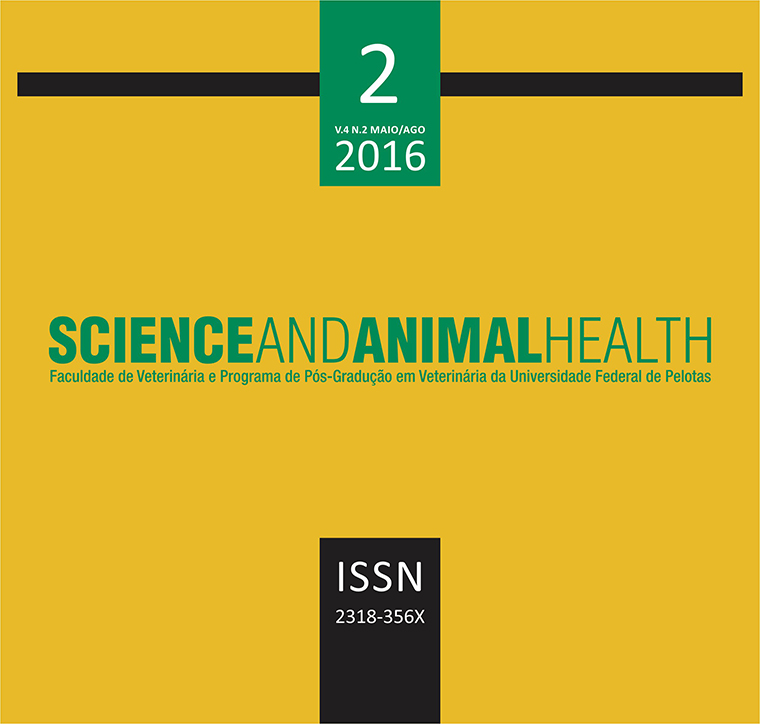CLINICAL AND HEMATOLOGICAL EVALUATION OF LEISHMANIASIS SERUM-POSITIVE DOGS IN RIO GRANDE DO SUL
Resumo
Visceral leishmaniasis (VL) is a zoonotic infection causing chronic and systemic disease in numerous mammals. It is caused by the Leishmania (Leishmania) chagasi protozoan and transmitted by bites from the female phlebotomine Lutzomyia longipalpis. Rio Grande do Sul is a Brazilian state that was considered VL-free. However, in 2008, canine VL was detected in Western cities of the state. Lutzomyia longipalpis is the main vector of VL and despite having a wide distribution in Brazil, only in 2009 was identified in São Borja, Rio Grande do Sul, in the urban area of the city. The present study evaluated the prevalence of canine VL in kennels managed by local and non-governmental organizations, unstudied areas of Rio Grande do Sul. The dogs were subjected to general, tegumentary, and lymph node examinations. A complete blood count, parasitological and serological examinations were also performed. The serum-positive dogs showed dermatological lesions, normocytic normochromic anemia, thrombocytopenia and neutrophilic leukocytosis. Our investigation of non-endemic districts confirms the presence of oligosymptomatic dogs in Rio Grande do Sul.



